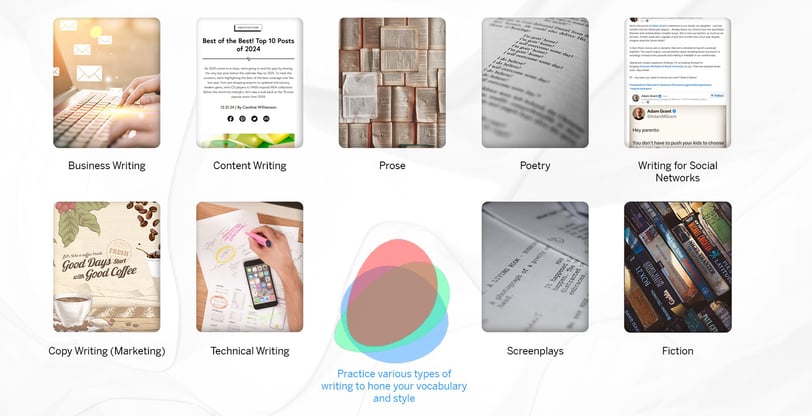Technical Writing in Modern Organizations: What it Takes to be One
A glance into the profession of technical writing. Understanding what it is and what to expect as a professional in the industry.
1/12/20257 min read
Technical Writing today is known by different names: Information Developer, Information Architect, User Assistance Developer, Instructional Designer, and so on. Traditionally, technical writers are people who write about products in order to help user understand the various functions and capabilities. Primarily these comprise of artifacts like User Manuals and Help Documents for a product or organization. However, today technical writers don many roles like content creator, video editor, illustrator, and so on for the sake of distributing information effectively and making technical products more approachable to users.
Knowledge Sharing in Modern Organizations
In the yesteryears of print documentation, technical writing meant writing booklets and manuals that were shipped to customers along with the product. Today, the digital nature of things has changed things around. Documentation does not restrict itself to product manuals but extends to other artifacts such as tool tips for UI elements within the product, troubleshooting articles, embedded help, blogs on the product, How-to videos and so on. Companies have understood the benefits of having dedicated people to design learning experiences to help customers know about their product and use them effectively in a view to subsequently retain them in a competitive landscape. This has a profound impact on businesses. For instance, when customers learn to use a product thoroughly, understanding its various nuances, they tend to be more invested in the product. This creates affinity with the product and integrates them into the product ecosystem, encouraging loyalty. This is largely facilitated through information, helpful knowledge that educates the user about the functions of the product and how to use them effectively.
Technical writing has changed faces too, in a dynamic work environment like today documenting functions of the product is no longer an external requirement but also has internal implications. They serve as first source of knowledge for new employees who want to know about the product and its various nuances. For instance, API and developer documentation are aimed at developers in large teams to share knowledge in a formal and streamlined fashion.
Like Don Norman (in The Design of Everyday Things) puts it, knowledge in the world is easy to propagate and share as opposed to the knowledge in the head. As a technical writer, you are in the knowledge business, where you relay knowledge from one group to another, both inside and outside the organization.
With these aspects in mind, let’s take a look into what comprises this profession:
Individual Skillset
At a fundamental level, technical writing is about knowledge management and the qualities required in this profession revolve around collecting information and broadcasting them. Here are a few skillsets that the profession demands from an individual:
Ability to consume information effectively and sharing it the most simple way possible
A good comprehension of concepts, technological or otherwise, is necessary. The ability to break a complex topic and reframe them into simple language is the crux of this profession. Like Albert Einstein says, you have only understood things when you can share the concepts to a 5 year old. This means not only relaying information but deciding what information to relay, because you do not have the liberty to school them for days but just a couple of minutes to tell them how to get something done. If you possess a thirst for knowledge and enthusiasm to relay this information to another person in the most seamless manner, you will find this profession fulfilling.
Good interpersonal communication
As a technical writer you are required to collect information from different sources and consolidate them to write a piece. The sources of information could be people from different roles within the same team, people from a different team, and sometimes people outside the organization when there are external integrations and dependencies. Having the ability to spark conversation with people and create an environment for information exchange is vital for collecting and sharing information. You may sometimes need the same people to review the work for correctness or a different work.
Strong command over language
This is a pre-requisite as we are working in the communication industry. The ability to distil complex concepts in engineering speak and convert them into normal speak is not easy. Sometimes you have to consciously shed the engineering language. This is an important facet of writing for this job role. The engineers and the product people are engrossed into the product that the complex language that they use may feel normal for them, you may not feel it is complex sometimes when you are also part of the linguistic group. However, if you relay the same complex language onto the user, you are likely to drive them away for being jargonistic. You must consciously break the engineer speak and speak in clear language to the user. Along with this, you are expected to write for a global audience which requires the use of easy English which is comprehensible for people who are from countries whose native language is not English. A good command over language will help you tackle all of these nuances that the job throws at you.
Multimedia skills
The digital nature of things today allows for the flexibility of using different multimedia for information exchange. Sometimes certain topics could be difficult to communicate with text alone, in such instances, you may have to use graphics, videos, or marked-up screenshots to communicate your message. This allows for you to stay agile in a changing information landscape.
These are some of the important skill sets that I have outlined. There are other skills like problem solving, design-oriented thinking, love for technical information and details, etc which will take you a long way in this line of work.
Industry specific skills
Additionally, you may have to pick up certain other skills that are useful in this line of work. Like,
Understanding DITA
DITA (Darwin Information Typing Architecture) is the standard for technical communication where you mark up information as components during authoring. This enables you perform different functions during publishing. Most organizations tend to develop and maintain their own methods for marking up information but knowing DITA gives you an understanding of the fundamental concepts in information arrangement.
Using a Style Guide
Most organizations have their own style guide that postulates the ways of using language for technical communication within the organization. Style guides are your friend but they could be a little difficult to get along with initially. However, for organizations with a large group of writers, style guides ensure that there is cohesion between content written by different authors. If you do not have a specific style guide you can always refer to MLA handbook or the Microsoft Manual of Style, these are some of the popular style guides available today. They offer best practices and usage instructions on punctuations, capitalizations, and much more that enables you to establish consistency in your writing.
Project management tools
Since most documentation work is tied closely with engineering processes, you may have to learn how to use various project management tools to stay in sync with the larger team and to report your work. This is no difficult task if you are accustomed to having your own system of task tracking and management. Breaking up the different processes involved in documentation and laying them out on a timeline alongside the engineering process will help you streamline your efforts. Creating a system to track this will largely help you create comprehensive documentation at the stipulated time.
In addition to this, you may have to get yourself up to speed to information architecture concepts such as content reuse, content repurposing, and hyperlinking.


Occupational Hazards
Pay parity with different functions within the organization
All is not roses, this profession also has its down sides, with pay being an aspect. In comparison to developers and other engineers within the industry, the salaries of technical writers are a tad bit lower. However, within the writing industry it is one of the high paying gigs if you take into account the amount spent in work and the money you get in return. However, some of the benefits of other writing jobs may be missing, like having your own body of work to show for and by lines.
Limited play as a writer
If you aspire to be a writer, technical writing offers less scope for growth as you are always expected to reduce the complexity in your writing and tone down your flair. In addition, your vocabulary also gets specific to the industry you are in. Technical writing is a good industry to earn money but in order to be a versatile writer you must engage in reading and writing outside the scope of your work. This helps you build vocabulary and practice other types of writing. Overtime, you will have to develop two different linguistic personas - one for your industry and one for your personal body of work. What's promising is that are technical writers who have had successful writing careers, like Robert M. Pirsig the Author of Zen and the Art of Motorcycle Maintenance.
Boredom
Over a period of time the subject matter catches up to you. Dwelling upon the same knowledge area could make things monotonous. Also, the fact that you are writing the same way for a very long time. This is a common gripe among technical writers especially ones who are more inclined towards writing as a career instead of moving upwards to an engineering / project management role. Having your own writing project or any creative hobby on the side helps you channel the creativity productively without growing resentment towards the profession.
Conclusion
In a way, Technical writing is a fulfilling job where you empower people with knowledge to get something done. I respect this profession because we are enablers. Personally, I learnt Photoshop and Illustrator solely through knowledge from the internet without a formal education. This could have only been possible because of help documents written by technical writers about the products’ various functions and how to use them. Alongside various Youtubers and community members who shared their knowledge.
The work also provides you the ability to gain knowledge about the industry you work for. As you are constantly engaged in its knowledge troves interacting with the experts who design the things that people use for their day to day.
I always use one analogy to describe the technical writing job, "I am a journalist working within a very specific domain collecting and reporting to readers the relevant information; and a professor educating users about various functions of the product and how to use them effectively".
Try you hand at different writing projects to keep in touch with different forms of writing.


